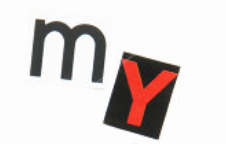2 February 2018
This week’s Year 1 spellings are high frequency words and common errors that children make.
Year 1
- our
- said
- they
- love
- are
This week’s Year 2 spellings are words containing a silent letter.
Year 2
- write
- wrapper
- climb
- climbed
- climbing
- knock
- knocked
- knocking
- lamb
- knee
26 January 2018
Write your spellings using two colours; one for vowels and another for the consonants.
push someone
Year 1 list
- you
- your
- put
- push
- pull
Year 2 list
- every
- everyone
- everybody
- everything
- everywhere
- some
- someone
- somebody
- something
- somewhere
26 January 2018
Your child’s spellings are all words with double consonants for a short vowel sound. Your child will be tested on Friday 02 February:
- appreciate
- according
- apparent
- community
- committee
- exaggerate
- immediate
- suggest
- recommend
- opportunity
We will be testing the rules, not the list of words!
Write a nonsense story you may use these words. How many more can you include which follow the same rules.
26 January 2018
Spelling list for this week: drop the’e’ for -ing.
The children will be tested on these words on Friday 02 Feb.
- hoping
- aching
- dancing
- shining
- arriving
- exploring
- believing
- deciding
19 January 2018
This week, our spellings will be in preparation for our big topic: ‘Life Forces’. We’ll use these words regularly over the next few weeks.
- evolution
- classification
- classifying
- juvenile
- adolescent
- adult
- infant
- offspring
- lifecycle
- characteristics
Your task is to create a glossary for these words.
19 January 2018
Spelling homework this week is a look, say, cover, write, check activity for words that end in e. This week, the children have been using the spelling rule – ‘drop the ‘e’ for ing‘. For example:
- hope – hoping
- dance – dancing
| Root word ending in ‘e’ | Drop the ‘e’ for ‘ing’ | Write the ‘ing’ word from memory using look, cover, write, check strategy. | ||
| hope | hoping | |||
| ache | ||||
| dancing | ||||
19 January 2018
This week’s spellings for Year 1 are high frequency words.
Year 1 list
- you
- your
- put
- push
- pull
Year 2 are focusing on common exception words.
Year 2 list
- every
- everyone
- everybody
- everything
- everywhere
- some
- someone
- somebody
- something
- somewhere
12 January 2018
Your spellings to learn this week are words that include a silent letter. Your child will be tested on Friday 19 January:
- muscle
- rhyme
- rhythm
- yacht
- knife
- doubt
- environment
- solemn
- island
- knight
The task is to create a word search using these words. Can you add any extra words to this list?
12 January 2018
Use last week’s spellings to make ‘headlines’. Cut out letters from newspapers or magazines (or you could draw some) to spell out your words.


Year 1 list
- by
- my
- say
- says
- they
Year 2 list
- child
- children
- Christmas
- class
- classes
- climb
- climbed
- cloth
- clothes
12 January 2018
This week’s spellings contain different graphemes for the long ‘a’ sound. Most are also on National Curriculum’s Y3/4 spelling list. They’ll be tested on Friday 19 January.
- straight
- weight
- obey
- array
- vein
- famous
- potatoes
- separate
- neighbour
- strange
- eighth
Try the rainbow words strategy to support learning the spellings.